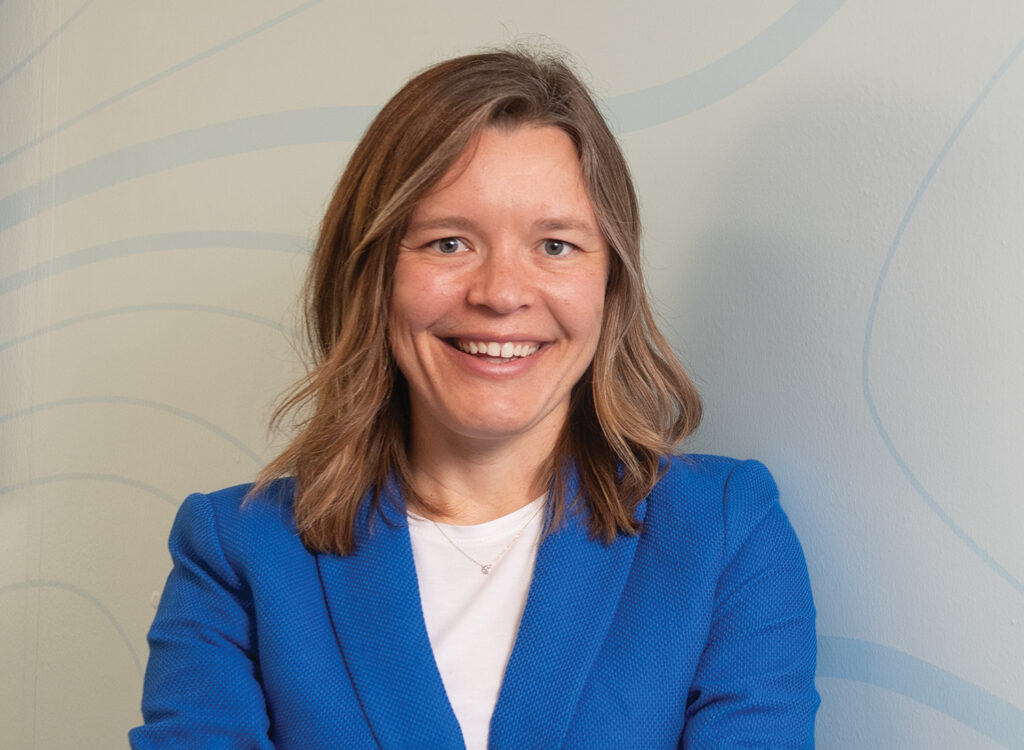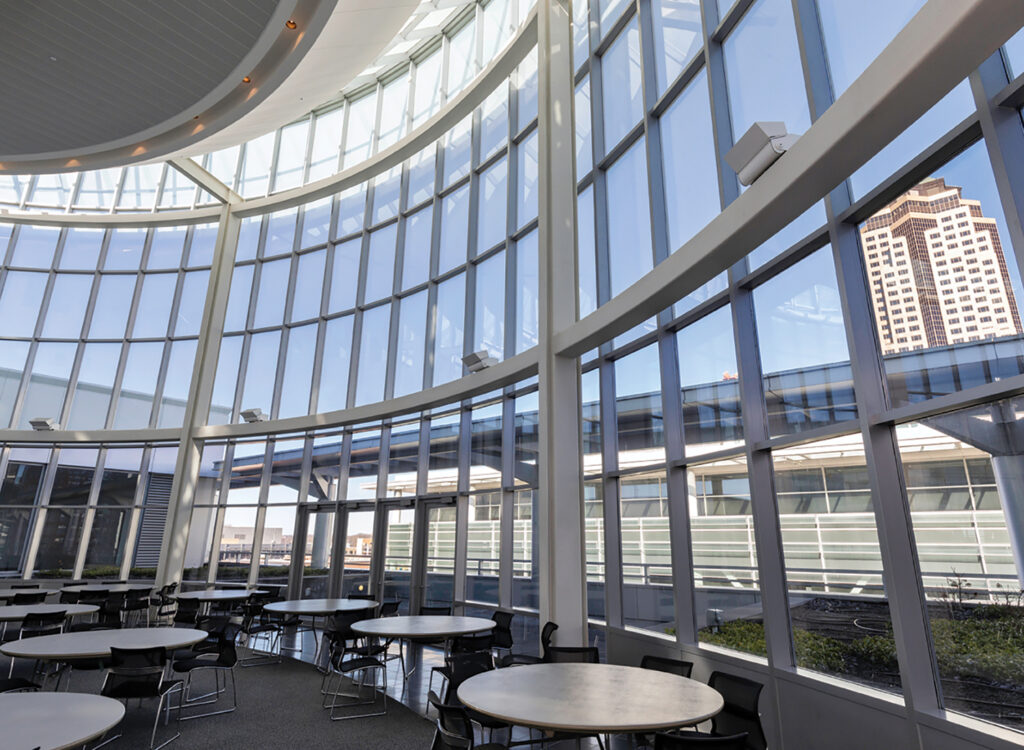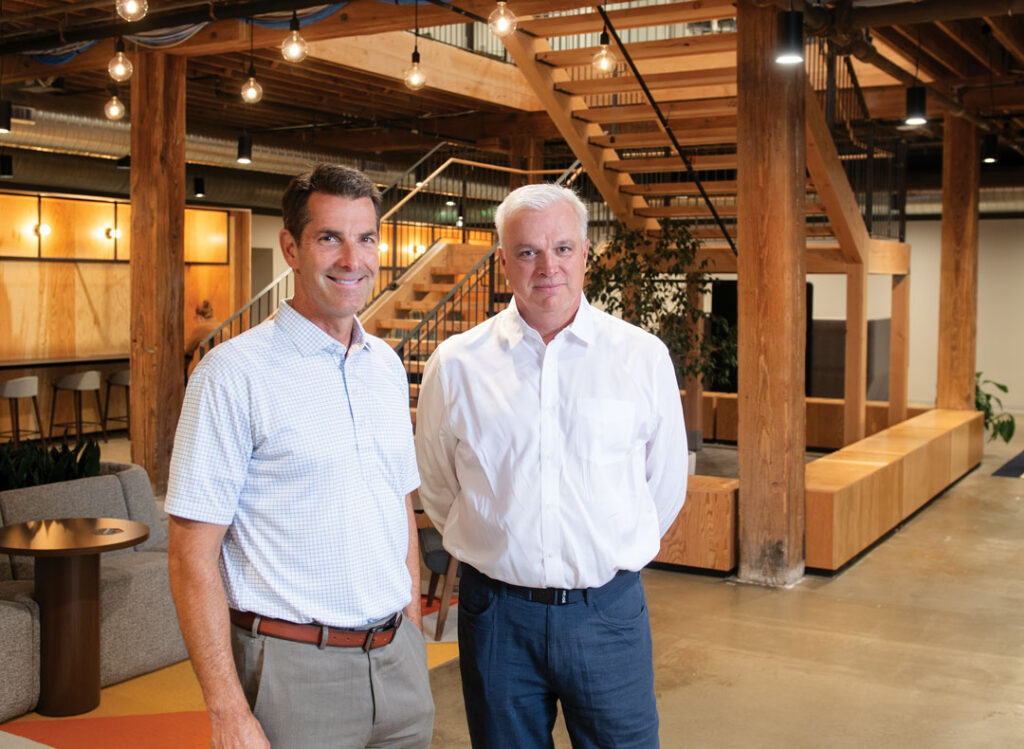A Closer Look: Stan Jensen
Executive vice president, college operations Des Moines Area Community College

Stan Jensen was all set to retire this summer after successfully leading the turnaround of a struggling college in Michigan as its president. But then a friend at Des Moines Area Community College told him about an opening at DMACC that sounded like a great fit for him. Since beginning that position in January, Jensen has been responsible for the day-to-day operations of DMACC, the state’s largest community college. He ran his own consulting business for 20 years, working as a business coach to middle managers and as a process improvement consultant to more than 30 colleges and universities across the country. During his tenure as president of Colorado Mountain College, he led the community college to record enrollment, doubled the endowment and raised student satisfaction rates more than 30 percentage points. Most recently at Henry Ford College in Dearborn, Mich., he led a $29 million turnaround for the once-floundering college. He received a national leadership award earlier this year for his work in building a shared governance culture at that college. He is now spearheading a continuous improvement process initiative at DMACC, using principles from his book, “30 Keys to Leadership.” He grew up on the family farm near Plainfield, and while raising his family in Ankeny served on the city’s planning and zoning commission. His Iowa roots run deep — his late father, John Jensen, served in the Iowa Senate for 24 years.
Tell me about your new position.
There was a position somewhat similar to this in the past; that person retired, so it was an opportunity to restructure some things. This position was restructured along with the position of vice president of enrollment services, which reports to me. The strategy was to have someone who could run the college day to day, and it gives [President Rob Denson] an opportunity to be more external and to continue to network in the community, in Iowa and throughout the country.
Is this part of a succession plan for DMACC?
That would be a good question for Rob and the board; I don’t know about that. The realities are Rob and I have both have a similar attitude about retirement in that we’re both in good health — I’m 65 and he’s a little older than I am. So if you’re in good health and you can still serve and you enjoy what you do, why not keep doing it? I think he’s going to be here another five years, and that’s great, I’m all for that.
Given your experience as a college consultant, how do you see DMACC positioned?
I think DMACC is poised, as Rob has put it, to have a rebirth. It’s really a great college, and I think it has an opportunity to become even more significant. … We’ve already had five continuous process improvement teams [meet] and we’ve got five more scheduled to start this fall. I’ve built over 900 of those teams all over the country in businesses as well as colleges and universities.
That’s the model based on W. Edwards Deming’s model?
It is. I’ve written a book about it for colleges, and I’ve got one for businesses as well. Constant improvement of processes and systems in our case helps us serve our students better. We’ve had one [team] on how to improve online offerings. Workforce learning is another team we had this past semester; another one was on advising. Those teams are starting to implement [recommendations] now, and we’ll have more this fall.
Any overall themes for improvement that have already been implemented?
I think the whole attitude and emphasis on customer service is a big theme. Of course, our customers are our students, our internal people, and all of the communities of Central Iowa. How do we better serve our stakeholders — our students — and each other in order to serve our students better? … And helping Iowans to get better jobs and to close the preparation gaps that they may have. Partnering with businesses and business organizations is certainly a big part of it. We’ll be emphasizing more of “being one DMACC” and coordinating our efforts internally so that we serve people externally better.
How does DMACC’s increasing size affect how it operates?
I think we have a responsibility as one of 15 community colleges in Iowa; we certainly have a commitment to being a great partner with the other community colleges. … We need to work together so that everyone in Iowa benefits. DMACC serves right around 65,000 students a year, which is counting credit and non-credit students, so we’re the largest college or university in Iowa in that measurement. We have over 2,000 employees both parttime and fulltime. …
How productive we can be is determined by the system in which each of us works. If we work in a fairly anemic system, we have a hard time serving our students, but if we have a really strong and intelligent system, then we can serve our students better.
What’s the balance between providing needed programs and doing well financially?
We offer a lot of programs that actually lose money for us, but they help Iowans. Like nursing programs — you never make any money on nursing; not with our tuition you don’t. But we do break even or make money on some other areas. We have five different locations for our nursing program within our six campuses, so we take it very seriously.
What’s the significance of the partnership recently announced between DMACC and Purdue University Global?
It gives nurses, once we graduate them as an RN, the opportunity to begin working as a nurse and then online begin completing their bachelor’s degree in nursing. As more nurses are encouraged to earn their BSN, that’s a market change, and we want to ensure that our students don’t get left behind. It’s a great opportunity to partner so that our students have those articulation pathways, no matter which school they want to go to.
Are online course offerings becoming more prevalent with DMACC?
One of the teams we had last semester was how to improve our online [offerings]. We are going to emphasize online a lot, because a lot of students want that. In Iowa we have full employment, so everyone has a job — or two. So for them to come to college, often it’s going to be from 10 p.m. to midnight or 2 in the morning, and they’re going to be online. So DMACC has a lot of classes online, and we want to make sure we have the best quality and the best scheduling to best serve our students. We already have the lowest pricing, so we know it’s going to be a great value. So I think you will see DMACC expand a great deal into online, and I don’t think that will diminish our face-to-face classes.
What programs are seeing some of the fastest enrollment growth?
I think technology areas are certainly big ones; cybersecurity is a big one. We are leading a consortium of businesses here in Central Iowa that need more [cybersecurity training].
Health care and the associate degrees that go along with them, like respiratory therapy and areas like that, are growing. Some programs that we’ve recently added revolve around water treatment and keeping water sources clean. Video animation is something that is growing a great deal, and we are very good at it. Every year we are competing with major universities, and we end up winning quite often. A lot of companies want that as part of their [web] strategy.
Other program expansions ahead?
All three domestic automakers have mechanics programs here, and we’re going to be expanding that building in the next couple of years, so that will be a real showcase of automotive care. I think we’re also going to see more international students. One of our most diverse campuses is our Urban Campus, and we’re going to be putting two or three new buildings down there in the next few years. I think that will help us grow our service to the downtown Des Moines area.
Also, work-and-learn [through apprenticeship programs] is appealing to many Iowans. Students can build stackable certificates toward an associate’s degree, and at the same time they’re working for companies that need those skills. It’s going to become more common that you have that kind of schedule, rather than “I’m going to go to school for two or four years, and then I’m going to get a job.”
As a parent I’ve seen how hard it is for students and graduates to figure out what they want to do. How can they get more help?
We have thousands of students come in [who don’t know what they want do]. That’s not a problem. But it is important to try out some stuff, and apprenticeships, summer work or even visiting a place for one day can help someone answer: Can I see myself here? If it’s true that everyone is going to have seven or more careers in a lifetime, you might as well get started on one. One thing we’re doing more and more as a college is Guided Pathways [to help students pinpoint their interests]. It’s something we’re working on, and it’s all I can say about that for now.
Tell me about your career track early on.
I was a pastor at one time, so I have a Master of Divinity degree. Then I became a dean at a small college and then finished my Ph.D. at the University of Iowa in history and the philosophy of education. I went into consulting and started my own company, Leadership Consulting, so I worked with a lot of businesses on constant improvement, quality and leadership development. I was a personal coach to over 200 people, mostly in middle management trying to get into top management.
How did you initially become a college president?
I worked with over 30 colleges and universities on team building and leadership development. I was helping a lot of colleges to help turn them around and be more significant to their students. Naturally if you work with a lot of college presidents, you start to think: “I could do that.” You make really good money as a consultant, but that’s not everything, and you get tired of traveling. So I asked a friend who was a college president in Boston, “What would you think if I applied to be a president at a college somewhere?” He said, “I think you’d be great. You know more about colleges than anybody I know.”
What do you enjoy as hobbies?
My wife and I bought a little farm near Cambridge. It’s only 13 acres, but we still call it a farm, or at least try to pretend it is. And I’ve been around horses a lot all my life, so I recently went up to Waverly and bought two matched Percheron workhorses. They’re huge — they’re 18 hands [6 feet tall at the shoulder]. I’ve really enjoyed them a lot; we’ve had them three or four months now. They’re really well-trained, dapple gray. I’ve also been a private pilot for 20-plus years, so I have a little airplane up in Ames. And of course we enjoy spending time together as a family.








